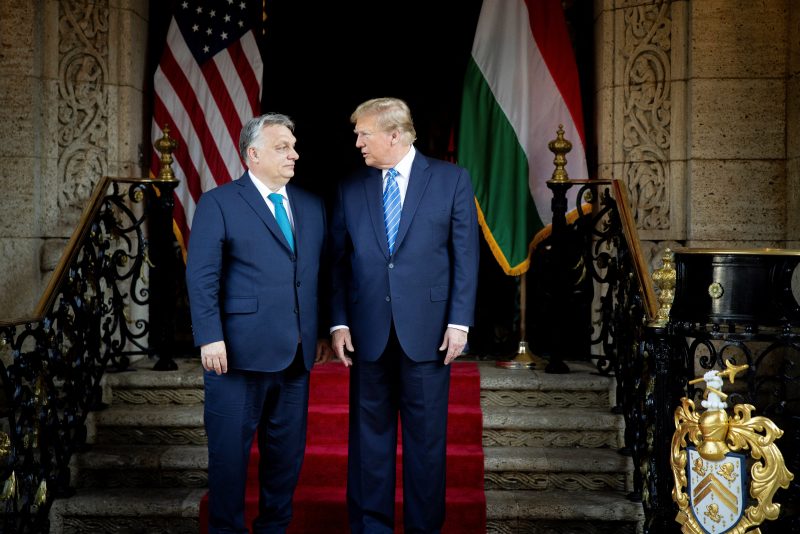In a recent move that has garnered significant attention from the international community, President Donald Trump met with Hungarian Prime Minister Viktor Orban. Orban, often labeled as an autocratic leader due to his government’s crackdown on media freedom and judiciary independence, has been a controversial figure both within Hungary and on the global stage. The meeting between the two leaders has sparked debate and speculation about the implications for US-Hungary relations and the future of democracy in Hungary.
One of the key issues that have come to the forefront following the meeting is the concerning trend of authoritarianism in Hungary under Orban’s leadership. Critics argue that Orban has systematically undermined democratic institutions, consolidated power in the hands of his ruling party, and suppressed opposition voices, effectively eroding the country’s democratic foundations. His government’s control over the media and judiciary has raised alarms about the state of press freedom and the rule of law in Hungary.
The meeting between Trump and Orban has been seen as a validation of the Hungarian Prime Minister’s leadership style by some, while others view it as a missed opportunity for the US to assert its commitment to democratic values and human rights. The Trump administration’s cozying up to authoritarian leaders like Orban has raised concerns about the US’s stance on promoting democracy and human rights globally.
Additionally, the meeting has raised questions about the strategic implications for the US in its relationship with Hungary. Orban’s government has increasingly aligned itself with Russia, much to the consternation of traditional US allies in Europe. The meeting with Trump could be interpreted as a signal of support for Hungary’s pivot towards Moscow, potentially complicating US-EU relations and Western unity in the face of Russian aggression.
The Trump-Orban meeting also comes at a time of growing populism and nationalism in Europe and around the world. Orban’s brand of right-wing populism, which emphasizes national sovereignty and cultural identity, has found resonance among segments of the population in Hungary and beyond. The meeting between the two leaders could be seen as a symbolic gesture of solidarity between like-minded leaders who espouse similar nationalist rhetoric.
Overall, the meeting between Trump and Orban has raised important questions about the future of democracy, human rights, and international relations in an increasingly polarized world. As authoritarian leaders like Orban continue to test the boundaries of democratic norms and institutions, the role of countries like the US in upholding democratic values and principles becomes all the more crucial. The implications of this meeting will undoubtedly reverberate across the political landscape, both domestically and internationally, for years to come.



























